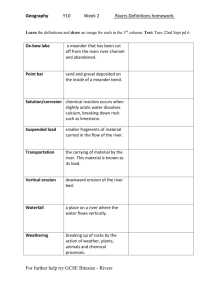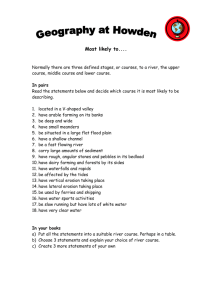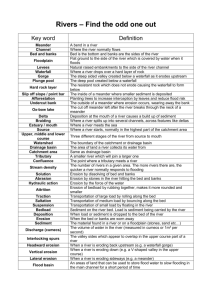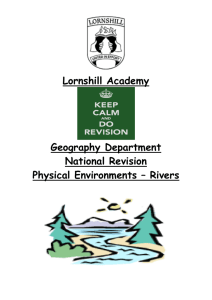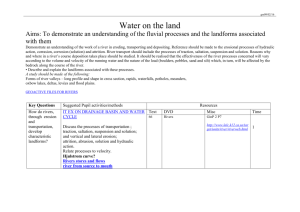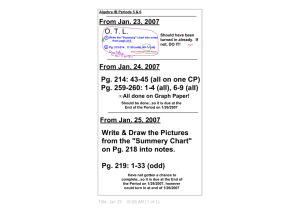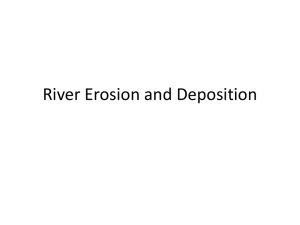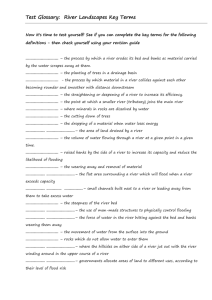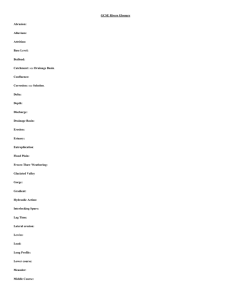Rivers: odd one out
advertisement
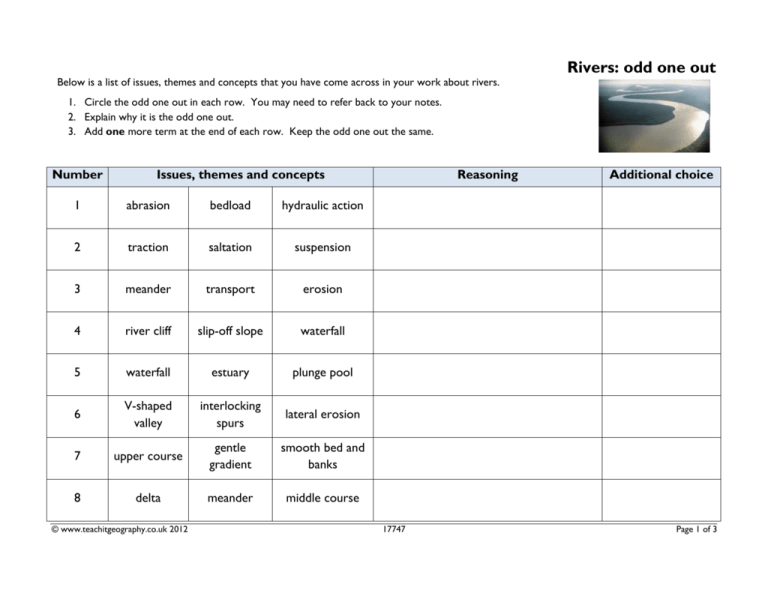
Below is a list of issues, themes and concepts that you have come across in your work about rivers. Rivers: odd one out 1. Circle the odd one out in each row. You may need to refer back to your notes. 2. Explain why it is the odd one out. 3. Add one more term at the end of each row. Keep the odd one out the same. Number Issues, themes and concepts 1 abrasion bedload hydraulic action 2 traction saltation suspension 3 meander transport erosion 4 river cliff slip-off slope waterfall 5 waterfall estuary plunge pool 6 V-shaped valley interlocking spurs lateral erosion 7 upper course gentle gradient smooth bed and banks 8 delta meander middle course © www.teachitgeography.co.uk 2012 Reasoning 17747 Additional choice Page 1 of 3 Rivers: odd one out Teaching notes Thinking about thinking This activity will help students make connections between important aspects of rivers. It should also help them review what they have learnt. It can be an individual, paired or small group exercise. Answers can be compared and evaluated as a class. Some suggested answers are available on the next page. The odd ones out are marked in red. Extension tasks The students could be asked to go back over their choices. They should be able to find a different odd one out for each number or a different reason for their original choice. In pairs, they could discuss which number they found the most difficult to complete and which one they considered to be your best answer. © www.teachitgeography.co.uk 2012 17747 Page 2 of 3 Rivers: odd one out Answers Number 1 2 Issues, themes and concepts abrasion traction bedload saltation hydraulic action suspension 3 meander transport erosion 4 river cliff slip-off slope waterfall 5 waterfall estuary plunge pool 6 V-shaped valley interlocking spurs lateral erosion 7 upper course gentle gradient smooth bed and banks 8 delta meander middle course © www.teachitgeography.co.uk 2012 Reasoning Additional choice Abrasion and hydraulic action are processes of erosion operating within the river channel. Bedload is a type of material carried by the river. attrition or solution Bedload may be moved by either saltation (bouncing along the riverbed) or traction (rolling along the riverbed). Only smaller particles are held in suspension. bedload or boulder Erosion and transport are processes operating along the river’s course. A meander is a landform created by the processes of erosion and deposition. deposition A river cliff and slip-off slope are features associated with meanders. A waterfall is usually found in the upper course of the river. A plunge pool is carved out at the base of a large waterfall as rocks are swirled around due to the velocity of the water. An estuary forms where the velocity is much less, near to the mouth of the river. A V-shaped valley forms in the upper course of the river due to vertical erosion. Characteristics include very steep valley sides, with interlocking spurs, and a narrow valley bottom. Lateral erosion tends to take place in the middle and lower reaches of a river. As you move along the river’s long profile, the gradient or slope decreases. Particles within the river channel tend to become smaller, more rounded and better sorted with distance downstream, giving rise to smoother bed and banks. A delta forms where a river enters the sea. A meander is a key feature of the middle course of a river. 17747 meander overhang upper course or vertical erosion lower course or silt oxbow lake or slip off slope Page 3 of 3
